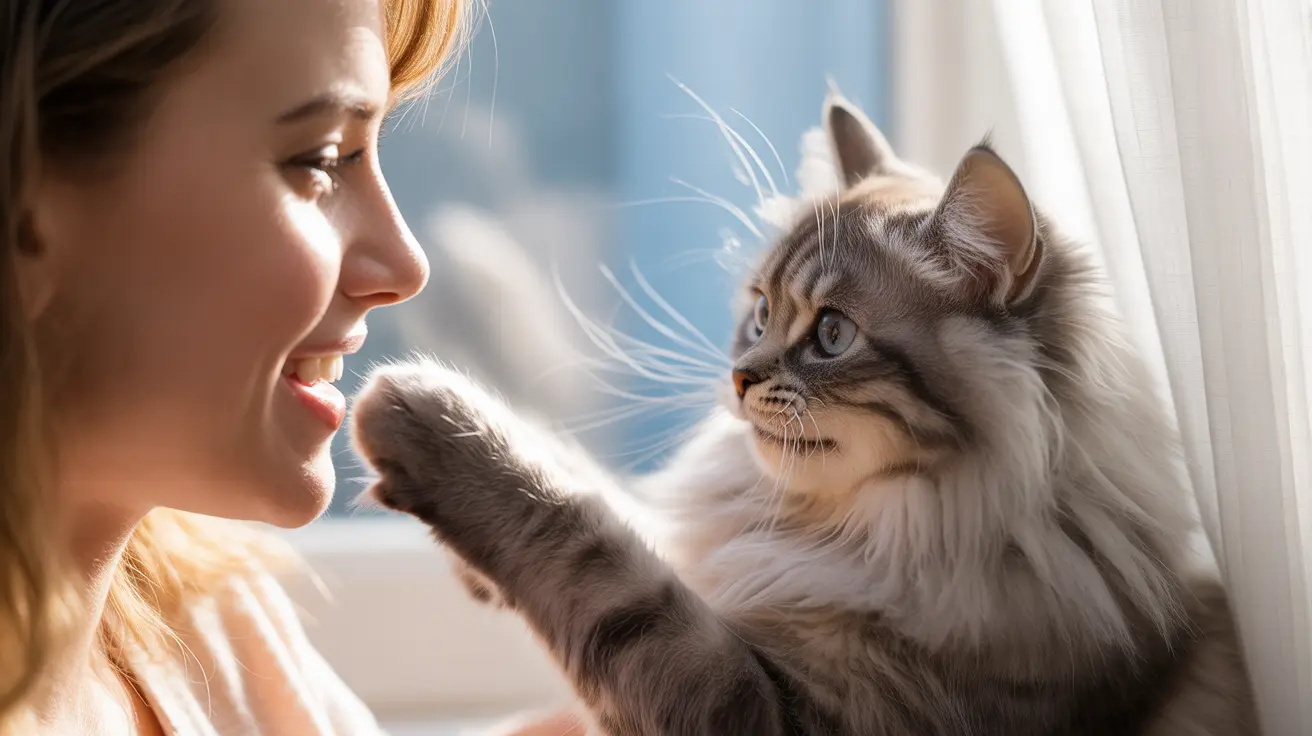The Incredible Sensory Powers of Cats
Cats are equipped with highly developed senses that allow them to detect subtle changes in their environment, especially when their owners are waking up:
Superior Hearing Abilities
A cat's hearing is approximately five times more sensitive than humans, allowing them to detect the slightest changes in breathing patterns, movement of bedsheets, or even variations in heart rate that occur during the transition from sleep to wakefulness.
Enhanced Visual Detection
Despite popular belief, cats actually see quite well in low light conditions. They can easily notice minimal movements like the flutter of eyelids or slight position changes, even in the dim morning light.
The Power of Routine and Memory
Cats are creatures of habit, and their ability to anticipate when you'll wake up goes beyond just their acute senses:
Internal Time Keeping
While cats don't understand clock time, they possess remarkably accurate internal timekeeping abilities. They can learn to anticipate regular events, including wake-up times, within minutes of their usual occurrence.
Pattern Recognition
Through repeated observation, cats learn to associate specific environmental cues with their owner's awakening. These might include the sound of an alarm clock, changes in ambient light, or even the schedule of passing vehicles outside.
Biological Motivations Behind Morning Behavior
Several biological factors drive cats to be particularly attentive to their owners' waking moments:
Crepuscular Nature
Cats are naturally most active during dawn and dusk, which often coincides with human wake times. This makes them particularly alert and eager for interaction during these periods.
Hunger and Social Needs
After a night without food, cats are typically hungry in the morning. Combined with their social needs, this creates strong motivation to notice and respond to signs that their food provider is awakening.
Common Morning Greeting Behaviors
Cats employ various strategies to acknowledge or encourage their owner's awakening:
- Gentle face touching or pawing
- Purring or melodic meowing
- Walking across their owner's body
- Sitting and staring intently
- Grooming their owner's hair or face
Training and Management Tips
While a cat's morning awareness can be endearing, sometimes their enthusiasm might come too early. Here are some strategies to manage early-morning behaviors:
- Establish consistent feeding times
- Provide evening play sessions to reduce morning energy
- Use automatic feeders to regulate meal times
- Avoid reinforcing undesired early-morning behaviors with attention
Frequently Asked Questions
How does my cat know when I am waking up in the morning?
Cats use a combination of their acute senses (hearing, vision, and smell) along with learned patterns and routines to detect when you're waking up. They can notice subtle changes in breathing, movement, and even heart rate.
What senses do cats use to detect when their owners are awake?
Cats primarily rely on their hearing to detect changes in breathing and movement, their vision to observe physical changes, and their sense of touch to feel vibrations from movement in bed.
Why do cats often wake their owners by pawing their face or meowing?
This behavior is typically motivated by hunger, desire for attention, or natural morning activity patterns. It's an effective strategy they've learned gets a response from their owners.
Can cats adjust their behavior if my waking routine changes?
Yes, cats are adaptable and can learn new routines relatively quickly. They will adjust their expectations and behavior patterns to match your new schedule over time.
How can I stop my cat from waking me too early in the morning?
You can discourage early morning wake-ups by feeding later in the evening, providing engaging play before bedtime, using automatic feeders, and consistently avoiding responding to early morning attention-seeking behaviors.
Understanding how your cat knows when you wake up can help you appreciate their remarkable abilities while also managing any unwanted early-morning behaviors. Their combination of keen senses, pattern recognition, and biological rhythms makes them uniquely attuned to their human's daily transitions from sleep to wakefulness.






